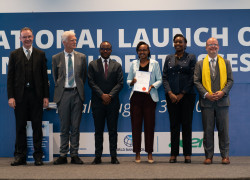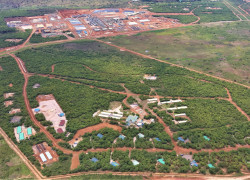PwC Luxembourg releases a comparative study of cross-border RMB centres
With ¥64bn of RMB deposits, Luxembourg is RMB hub for the eurozone
In the foreseeable future, we expect that the Chinese regulator will continuously deregulate the capital account and achieve full convertibility of RMB by 2020. When that happens, the market will play the dominant role in the development of cross-border RMB activities. We will see a diversified cross-border RMB market in which financial centres scattered across the globe are closely connecting each other
Dariush Yazdani, Market Research Institute partner at PwC Luxembourg
PwC Luxembourg has released today a comparative study of cross-border RMB centres, entitled Where do you Renminbi?, during the Renminbi Forum, hosted by Luxembourg for Finance in partnership with Clearstream at Philharmonie.
This report, preceded by a statement of Mr. Pierre Gramegna, Minister of Finance, aims to present the main financial centres which are positioning themselves to assist China in the internationalisation of its currency.
Internationalisation of Renminbi: Financial centres to play a complementary role
While Hong Kong is by far the most developed RMB offshore centre with sufficient liquidity and a broad range of RMB products, other RMB international centres have developed individual areas of expertise. For example, London and Singapore are known mainly for trade and forex, Taiwan and Germany have the advantage on goods trade and Luxembourg is a financial hub, serving as a gateway between China and Europe for investment and asset management.
The diversity and aptitude of these financial centres is the result of the market’s influence in their development. Within this context, cooperation between different RMB cross-border centres becomes increasingly important, not only because of the complementary roles they play, but also because collaboration prevents the fragmentation of offshore RMB markets. For instance, Hong Kong extended the opening hours of the RTGS system to facilitate RMB clearing and settlement for European countries, the stock exchanges in Singapore and Hong Kong cooperate on the secondary listing of RMB bonds and asset managers have begun using their RQFII quotas in Luxembourg UCITS funds.
“In the foreseeable future, we expect that the Chinese regulator will continuously deregulate the capital account and achieve full convertibility of RMB by 2020. When that happens, the market will play the dominant role in the development of cross-border RMB activities. We will see a diversified cross-border RMB market in which financial centres scattered across the globe are closely connecting each other,” states Dariush Yazdani, Market Research Institute partner at PwC Luxembourg.
The realisation of internationalising the RMB is no longer an ambitious aspiration, but a reasonable likelihood and Luxembourg has been at the forefront of this development.
The report, Where do you Renminbi?, is available on PwC Luxembourg’s website.
Communiqués liés
RSA launches technology and management liability insurance s...
RSA Luxembourg, part of Intact Insurance Specialty Solutions, today announces th...
Lancement d'une nouvelle connexion intermodale entre Bettemb...
CFL multimodal a le plaisir d'annoncer le lancement de sa nouvelle connexion i...
Experts from LUNEX award first micro-credentials in Rwanda o...
The Rwanda Ministry of Education (MINEDUC) formally inaugurated Syllabi, a publi...
ERG Notes that ENRC Secures Landmark Victory as Court of App...
Eurasian Resources Group (ERG), a leading diversified natural resources group he...
LetzToken et La Vie est Belle annoncent leur partenariat ouv...
«?LetzToken?», plateforme de tokenisation pionnière basée à Luxembourg, et ...
ERG announces a Pre-Export Finance Facility Agreement based ...
Eurasian Resources Group (“ERG”, “The Group”), a leading diversified nat...
Il n'y a aucun résultat pour votre recherche







